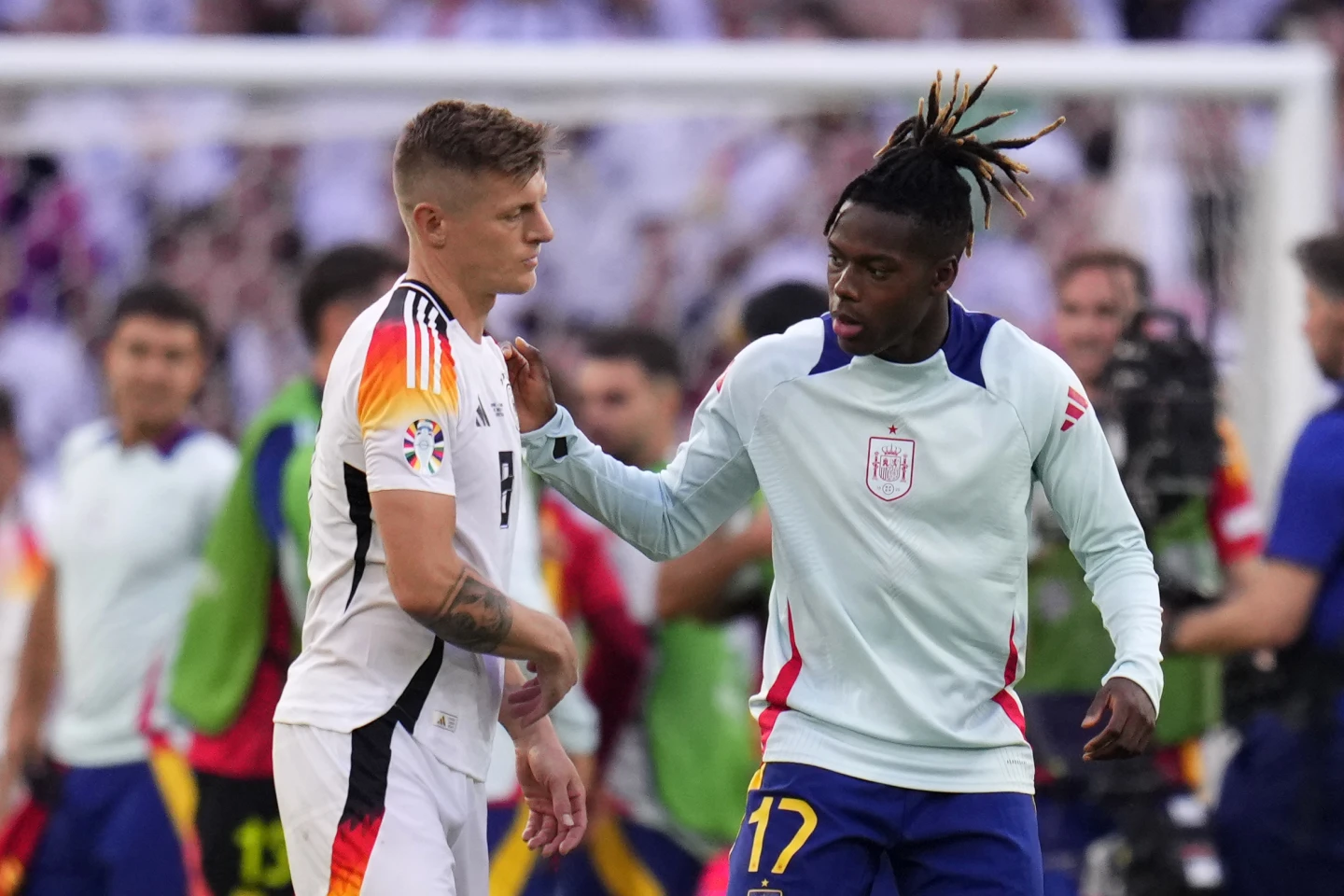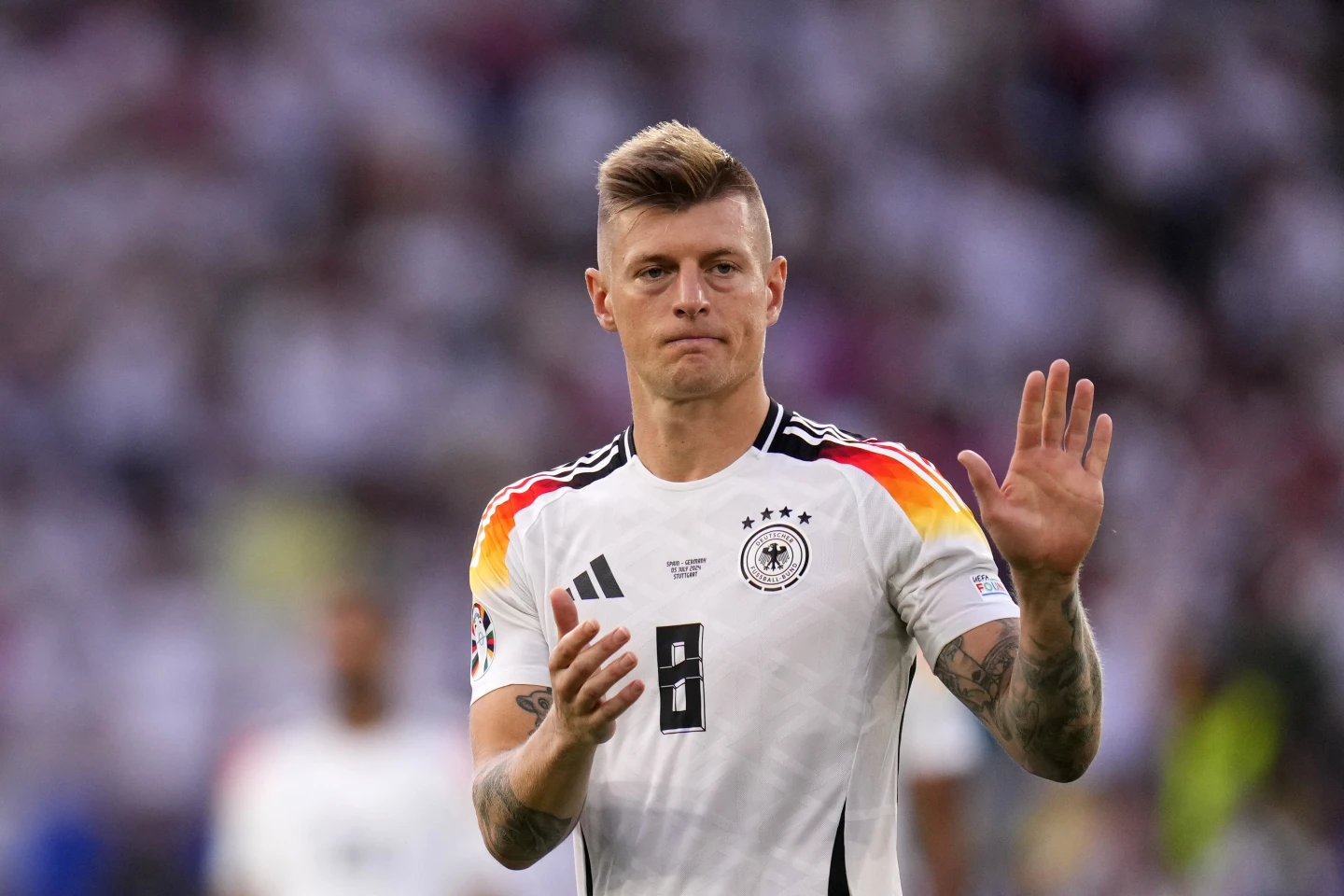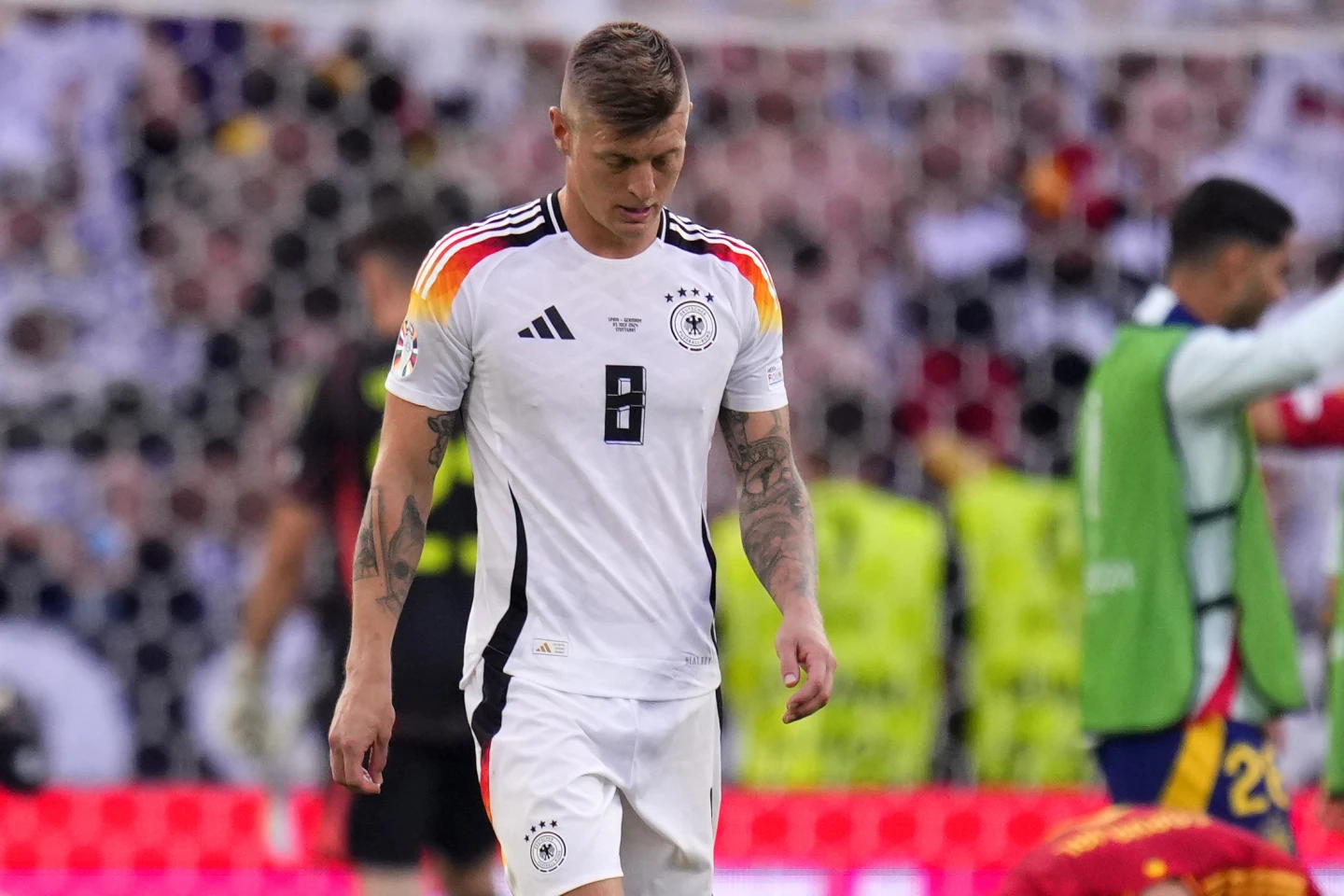This time, Toni Kroos won’t be making a comeback. As the German soccer star played his final match and exited the stage, both teammates and opponents sought him out for farewells.
The Spanish players, particularly Dani Carvajal and Joselu who were his teammates at Real Madrid last season, gave him warm hugs and kisses on the cheek. Other Spain players also paid their respects to Kroos, who came out of retirement to help restore Germany’s reputation in international soccer.
Kroos, the last player from East Germany to represent Germany, played a total of 114 games for his country. His final five matches at Euro 2024 further solidified his status as one of Germany’s greatest players of all time.
Germany’s coach Julian Nagelsmann spoke highly of Kroos, emphasizing his exceptional sporting achievements that may remain unparalleled among German players for a long time.
Nagelsmann convinced Kroos to come out of retirement shortly after becoming Germany’s coach last year. Kroos returned to lead Germany to important friendly victories over France and the Netherlands, boosting team morale.
“I found it quite strange that before the news broke about bringing him back, no one seemed to support the idea. Yet, only four weeks after his return, everyone claimed they had thought of it for a while. Why did the national coach decide on this now?” Nagelsmann questioned.

Before Kroos’ return, Germany’s situation seemed dire. Nagelsmann had lost two games and drawn one in his initial four matches in charge, raising concerns of another disappointing performance at Euro 2024 following Germany’s early exit from the 2018 World Cup.
Overall, Kroos guided Germany to six victories and a draw before his run was ended by Spain in his eighth match since returning.
“We were very close, which is why it hurts so much,” Kroos said after Spain’s Mikel Merino scored the winning goal in the last minute of extra time.
Kroos didn’t think about retiring right after the game. “To be honest, right now the main feeling is that the tournament is over, because we all had a big goal that we wanted to achieve together. And this dream we all had has been simply shattered,” Kroos said.
He didn’t want to take too much credit for helping the struggling German soccer team.
“We all pitched in to do much better than before,” he said. “I’m happy that I could contribute a little so that in football, Germany has hope again and the ambition to improve and get better. And I’m also confident that the team will achieve that in the future.”
Kroos won many titles, mostly with Real Madrid, but also with Bayern Munich – six Champions Leagues, four Spanish leagues, three Bundesligas, three German Cups, and one Copa del Rey. His biggest success with Germany was winning the World Cup in 2014.
He had hoped to finish his career by winning the European title at home this summer, but his former Madrid teammates stopped that from happening.

Kroos was perhaps lucky not to be sent off – like another Madrid great, Zinedine Zidane – in his final game. He started the match with a bad challenge on Pedri, from which the Barcelona player couldn’t continue, and he played on the edge until he was finally shown a yellow card by referee Anthony Taylor in the 67th minute.
But all of that was forgotten after the game as everyone lined up with their own personal messages for Kroos.
“We know about his sporting successes,” Nagelsmann said. “What’s even more important, and what most people here don’t know, is simply his character, who he is as a person, how he spoke to the team right now even in a very difficult moment for him, how he assesses things.”
Nagelsmann said Kroos always saw himself as part of the group, that he was always a team player, despite being special.
